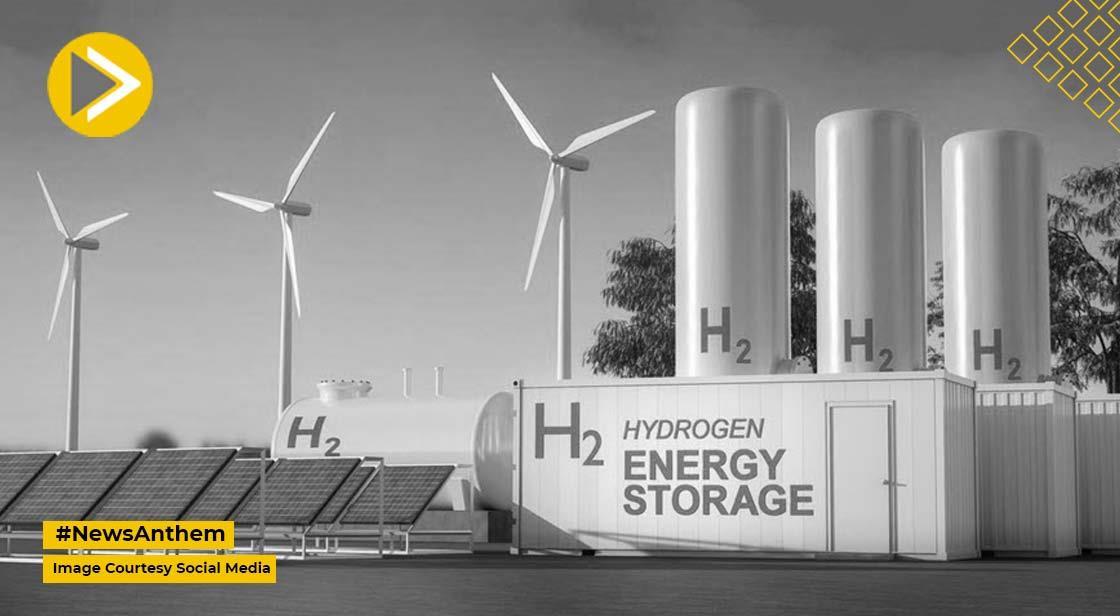National Green Hydrogen Mission: India Launches Pilot Projects for Cleaner Transport

Podcast
News Synopsis
In a major push toward sustainable transportation, India has launched five pilot projects for hydrogen-powered buses and trucks under the National Green Hydrogen Mission. This strategic move aims to test the feasibility of hydrogen as a transport fuel and lay the foundation for large-scale adoption in the coming years.
Government's Initiative for Hydrogen-Powered Transport
The Ministry of New and Renewable Energy (MNRE) had previously outlined a framework for implementing hydrogen-based pilot projects in the transport sector. It had invited proposals for the development of hydrogen-fueled vehicles, refueling stations, and designated operational routes. After an extensive evaluation process, the ministry approved five pilot projects, which will involve:
- 37 hydrogen-powered vehicles, including 15 hydrogen fuel cell-based and 22 hydrogen internal combustion engine (ICE)-based vehicles.
- Nine hydrogen refueling stations to support these vehicles.
These projects aim to test real-world applications of hydrogen fuel and assess its viability as an alternative to conventional fossil fuels.
Routes and Industry Leaders Involved
The hydrogen-powered buses and trucks will be deployed across ten key routes in India, including:
- Greater Noida–Delhi–Agra
- Bhubaneshwar–Konark–Puri
- Ahmedabad–Vadodara–Surat
These projects have been awarded to major industry players, including Tata Motors, Reliance Industries, NTPC, Ashok Leyland, HPCL, BPCL, and IOCL, all of which are actively working toward hydrogen mobility solutions.
₹208 Crore Investment for a Greener Future
The central government has allocated ₹208 crore in financial support for these hydrogen-powered mobility projects. The initiative is expected to be commissioned within 18 to 24 months, marking a crucial milestone in India’s transition to clean energy transport solutions.
The primary objectives of these projects include:
- Evaluating the safety and efficiency of hydrogen-powered buses and trucks under real-world conditions.
- Developing commercially viable hydrogen transport solutions by scaling up infrastructure and refueling stations.
- Reducing dependency on fossil fuels and curbing carbon emissions in the transport sector.
Hydrogen-Powered Transport: A Game Changer for India
As one of the world’s fastest-growing economies, India is focusing on sustainable energy solutions to meet its ambitious climate goals. Hydrogen fuel, known for producing zero carbon emissions, has the potential to revolutionize long-haul transport and public mobility.
These pilot projects will act as a testing ground for:
- Assessing the cost-effectiveness of hydrogen fuel technology.
- Analyzing operational efficiency and long-term sustainability.
- Encouraging private sector investment in green hydrogen infrastructure.
National Green Hydrogen Mission: Driving India’s Clean Energy Goals
The National Green Hydrogen Mission, launched on January 4, 2023, is a flagship initiative with an outlay of ₹19,744 crore until 2029-30. It aligns with India's commitment to achieving self-reliance (Aatmanirbhar Bharat) in clean energy and reducing carbon emissions significantly.
Through this mission, India aims to:
- Establish itself as a global leader in hydrogen-based technology.
- Develop green hydrogen production and distribution networks.
- Facilitate a clean energy transition for industries, transport, and power generation.
Conclusion: A Step Toward Sustainable Mobility
India's push for hydrogen-powered buses and trucks under the National Green Hydrogen Mission marks a significant step toward a cleaner, greener future. By launching five pilot projects with 37 hydrogen-fueled vehicles and nine refueling stations, the government is actively exploring the feasibility of hydrogen as a sustainable transport fuel.
With ₹208 crore allocated for financial support, these projects will serve as a testing ground to assess technical feasibility, safety, and economic viability. Insights from these initiatives will help shape policies for large-scale hydrogen adoption, reducing India's dependence on fossil fuels and cutting carbon emissions.
As India aims to become a global leader in clean energy and green mobility, these pilot projects will play a crucial role in accelerating hydrogen technology in the transport sector. If successful, hydrogen-powered vehicles could become a mainstream solution, driving India's transition toward self-reliance (Aatmanirbhar Bharat) in renewable energy.





